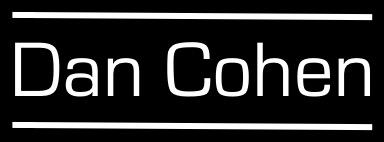The end of this year has seen much handwringing over the stress of information overload: the surging, unending streams, the inexorable decline of longer, more intermittent forms such as blogs, the feeling that our online presence is scattered and unmanageable. This worry spike had me scurrying back to Ann Blair’s terrific history of pre-modern information stress, Too Much to Know. Blair notes how every era has dealt with similar feelings, and how people throughout the ages have come up with different solutions:
These days we are particularly aware of the challenges of information management given the unprecedented explosion of information associated with computers and computer networking…But the perception of and complaints about overload are not unique to our period. Ancient, medieval, and early modern authors and authors working in non-Western contexts articulated similar concerns, notably about the overabundance of books and the frailty of human resources for mastering them (such as memory and time).
The perception of overload is best explained, therefore, not simply as the result of an objective state, but rather as the result of a coincidence of causal factors, including existing tools, cultural or personal expectations, and changes in the quantity of quality of information to be absorbed and managed…But the feeling of overload is often lived by those who experience it as if it were an utterly new phenomenon, as is perhaps characteristic of feelings more generally or of self-perceptions in the modern or postmodern periods especially. Certainly the perception of experiencing overload as unprecedented is dominant today. No doubt we have access to and must cope with a much greater quantity of information than earlier generations on almost every issue, and we use technologies that are subject to frequent change and hence often new.
Blair identifies four “S’s of text management” from the past that we still use today: storing, sorting, selecting, and summarizing. She also notes the history of alternative solutions to information overload that are the equivalent of deleting one’s Twitter account: Descartes and other philosophers, for instance, simply deciding to forget the library so they could start anew. Other to-hell-with-it daydreams proliferated too:
In the eighteenth century a number of writers articulated fantasies of destroying useless books to stem the never-ending accumulation…One critic has identified the articulation of the sublime as another kind of response to overabundance; Kant and Wordsworth are among the authors who described an experience of temporary mental blockage due to “sheer cognitive exhaustion,” whether triggered by sensory or mental overload.
When you ask historians which place and time they would most like to live in, it’s notable that they almost always choose eras and locales with a robust but not overwhelming circulation of ideas and art; just enough newness to chew on, but not too much to choke on; and a pervasive equanimity and thoughtfulness that the internet has not excelled at since the denizens of alt.tasteless invaded rec.pets.cats on Usenet. Jonathan Spence, for instance, imagines a life of moderation, sipping tea and trading considered thoughts in sixteenth-century Hangzhou.
Feels to me like there are many out there grasping for a similar circle of lively friends and deeper discussion as we head into 2014.

Leave a Reply
You must be logged in to post a comment.